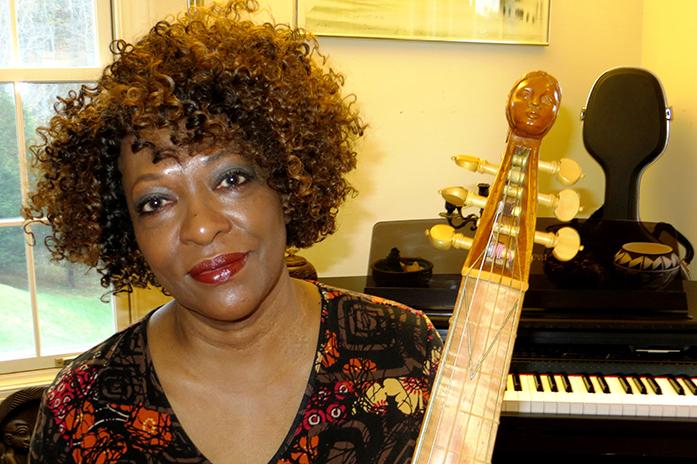By Tessa Solomon
Rita Dove — former U.S. Poet Laureate, Pulitzer Prize-winner, and the recipient of numerous lifetime-achievement Awards — is not yet ready to retire her voice.
“A ‘lifetime-achievement award’ makes you think, ‘Now am I just supposed to shut up and be there?’ ” Dove said.
The phone connection regularly broke up during the 30-minute or so call — great spikes of static as her car bounced along its cross-country trek — but Dove, who is this year’s University of Iowa Jonathan C. Goldsmith Visiting Author, rarely interrupted her musings to acknowledge any of the interference.
“I’m expected to say that it feels wonderful,” she said. “But I can’t help thinking, ‘Wait a minute, I’m not done yet.’ ”
Today, Dove, a graduate of the Iowa Writers’ Workshop, will return to Iowa City for a reading in the Main Library Shambaugh Auditorium at 8 p.m.
A brief account of some of the poet’s greatest achievements — a complete listing would critically deplete this article’s allotted word count — includes the 2011 National Medal of Arts and her status as the first African-American to hold the title of U.S. Poet Laureate, a position she helped redefine by advocating public appreciation and awareness of the African Diaspora and its literature.
At the reading tonight, Dove will perform passages from her newest release, Collected Poems: 1974-2004, which was recently shortlisted for the National Book Award in poetry.
The collection provides a taste of the many poets Dove has has been throughout the years.
The sprawling subject matter of Dove’s work reflects her infinitely inquisitive nature, one that has long caused pains for critics and colleagues who attempt to label her writing.
“People want to be able to categorize you,” Dove said. “For me, when I think about the entire world, I feel insatiable. There are so many things that interest me.”
Her mind is one any aspiring poet would pay to explore. Dove willingly opened those mental doors in our conversation, navigating profound lessons on poetry’s mechanics and mysteries — poems need a sense of their own music, she instructed — and her own literary path.
“I remember hearing as a student [in the Writers’ Workshop] all this constant talk of finding my voice,” Dove said. “Now, I embrace the insecure feelings I have in the middle of writing a poem because of the excitement in discovering something you didn’t know you wanted to know.”
Outside of the instances in which she is drawn to one specific narrative or historical character, Dove admits with contentment, that even she is not completely certain what runs through her mind as she unravels one of her poem’s drafts.
“I think that if I ever got comfortable with how a poem unveils itself, that means I’m all washed up,” she said.
Her motivations for writing deal less in the abstract.
“There is nothing that can get me more ready than reading an amazing poem or story,” she said. “It’s not about ego to me. When I read others’ literature and it gets me excited, I just want to be in their company. I write to be in their company.”
It’s not lost on Dove that some poets today may be writing with her own company in mind. She has an enviable status in the literary sphere, but it places Dove, and her poetry, in a strange position.
“There is a weird kind of loneliness, because you can’t really complain about it, in feeling that other people will want my poems just because of my name,” she said. “It’s one of the reasons every year that I find myself taking more and more time between the completion of a poem and submitting it to a magazine.”
It’s clear though, even implicitly, that Dove does not take her audience for granted.
“My goal is to write a poem in such a way that someone who is a total stranger could pick it up, read it, and feel what I feel,” she said. “That communication, to me, is the greatest compliment I can receive.”



